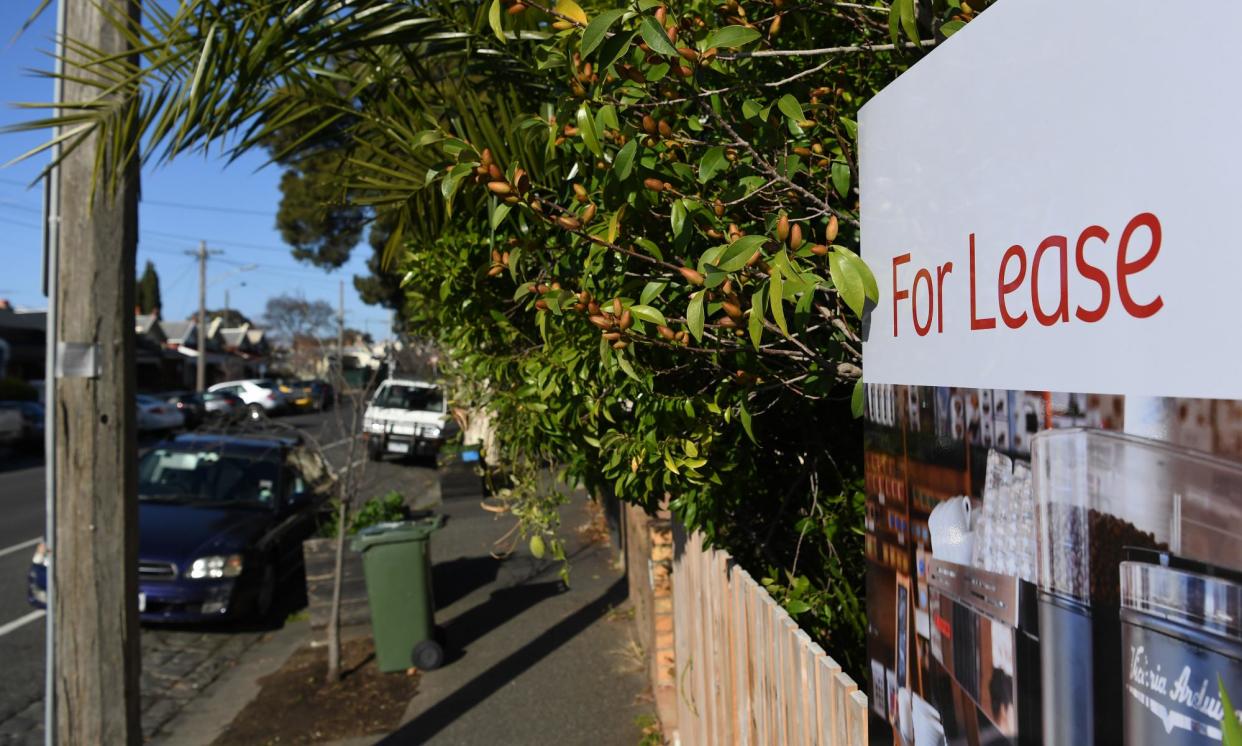Victoria seeks to end draughty rentals in revamp of heating and cooling standards

All Victorian rental properties will need air conditioning, draught proofing on doors and a certain amount of ceiling insulation under new minimum heating and cooling standards proposed by the state government.
The government on Monday announced it would begin consultation on the expanded standards requirements, including for broken appliances to be replaced with energy efficient ones, which it said would drive down power bills for renters by more than $800 a year.
They also include requirements for ceiling insulation, where there is none already installed, and draught sealing, which includes weather seals on all external doors. The government estimates these proposed upgrades would save renters about $567 a year off their energy bills.
Related: ‘Scope for exploitation’: investors eye rooming house conversions amid Melbourne rental crisis
The consumer affairs minister, Gabrielle Williams, said Victoria was facing a growing rental cohort who were also renting for longer.
The energy minister, Lily D’Ambrosio, said the measures would extend the financial and home comfort benefits from energy efficient appliances to renters.
“These are the kinds of things that homeowners right now are taking advantage of,” she said.
D’Ambrosio said the estimated cost of all upgrades would be about $5,000, but it would be staggered based on when appliances were coming to the end of their life.
She said some costs, like replacing appliances, would be required regardless of the standards.
Under the new standards, landlords will also be required to upgrade their hot water and heating systems with energy efficient electrical appliances when their current appliance reaches end of life.
Fixed heating is already a requirement in Victorian rentals, but it is currently not always mandatory for the heater to be energy efficient.
The standards would also require a 3-star fixed cooling unit in the main living area or an equivalent 2-star central cooling system, and 4-star shower heads in all showers. Rooming houses – properties with multiple rooms rented out individually – would also require a heater in each room.
Farah Farouque, the director of community engagement at Tenants Victoria, said it welcomed any move to improve minimum standards for renters.
“Renting is an essential service, and renters need better requirements for ceiling insulation and sealings against draughts to ward off the impacts of variable temperatures making their homes hotter and colder in different seasons,” she said.
Joel Dignam, executive director at the renters’ advocacy group Better Renting, backed the government’s announcement.
“It’s getting towards a suite of measures that will work together really well not just to reduce renter’s energy costs but also to ensure they have a healthy and comfortable home,” he said.
Dignam said it was vital the government considered measures to ensure landlords complied with the standards.
Environment Victoria also supported the measures, but said the proposed standards would not require under-insulated homes to be improved, describing it as a “gap which will keep some people living in uncomfortably cold or hot homes”.
Victoria is one of the only states in Australia to already have minimum energy efficiency standards for rentals.
The new, expanded standards would be phased in from October 2025 to give landlords and rooming house operators time to accommodate them.
Related: Housing in Australia is a bin fire – and desperate people will buy anything | Peter Lewis
The standards would come into effect at the signing of a new lease or when current appliances reach their end of life.
The state government introduced minimum renting standards in 2021 which include a requirement for landlords to provide a fixed heater. Minimum standards for rooming houses were introduced last year.
The inability of many tenants to regulate the temperature of their rental homes has come under increased scrutiny through the rental crisis.
Biannual research by Better Renting has repeatedly shown that rental homes around Australia often vastly exceed healthy temperatures in summer and are bitterly and sometimes dangerously cold in winter, with Victorian rentals an average of 23C indoors in summer and 9.8C in winter.

 Yahoo News
Yahoo News 
